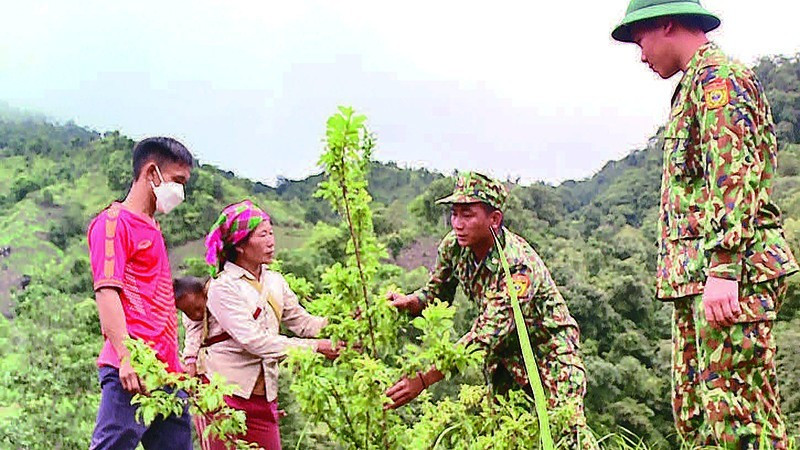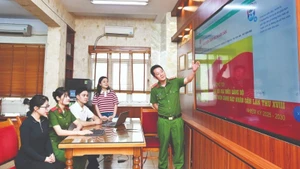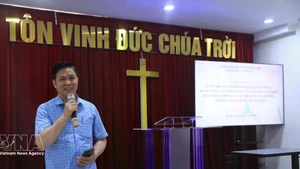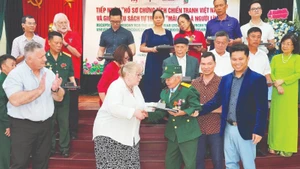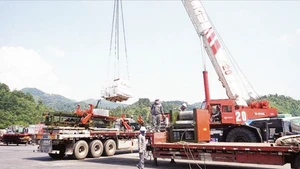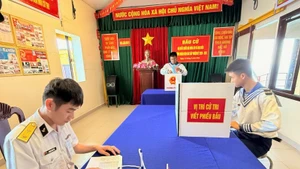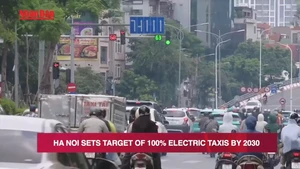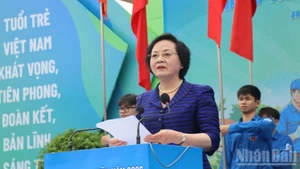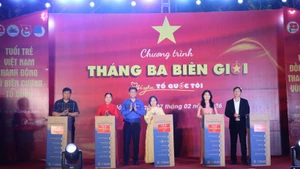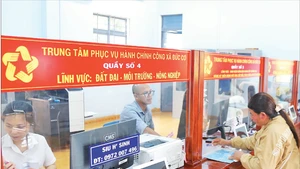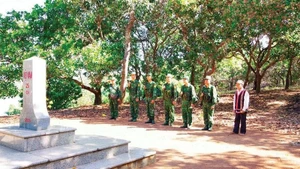In the remote border area of Lai Chau, there is an ethnic group called “Xa La Vang”. In the past, their lives were associated with a series of shifting cultivation and nomadic life, from one mountain to another forest. Wherever they went, they built tents, covered them with leaves and lived temporarily in them. When the leaves on the tents turned yellow, the cassava and yams were all dug up... they moved to another area. The name “Xa La Vang” is another way of calling the La Hu people.
In recent years, the Party and the State have had many policies to support ethnic minorities in general and the La Hu people in particular to stabilise their lives. Thanks to that, the La Hu people have come down the mountains, built villages and settled mainly in border communes such as Bum Nua, Bum To, Pa U and Thu Lum.
However, despite settling down for a long time, poverty still persists. In 2021, Lai Chau province had 2,952 La Hu households, of which 2,636 were poor (accounting for 89.3%).
Most recently, according to the results of the third survey to collect information on the socio-economic status of 53 ethnic minorities (2024), the rate of temporary houses among the La Hu ethnic group in Lai Chau accounted for 67% of the total number of households.
In the border commune of Pa U - where more than 90% of the La Hu people live, Lieutenant Colonel Cao Van Quy - Political Commissar of Pa U Border Guard Station said: “The La Hu people mainly live in hills and steep mountains, so they often cultivate upland rice, one crop per year, with low productivity. In addition, infrastructure is lacking, transportation is difficult, and many bad customs exist, affecting security, order, and people's lives”.
However, Pa U has gradually changed today. Green rice fields, corn fields, and fruit gardens line the hillsides. Many new roofs are close together along the inter-commune and inter-village roads. The road to Pha Bu village (Pa U commune) is now paved with concrete, making it much easier to travel.
The whole village is bustling, as people join together to complete the last houses with support funds from the National Target Programme for Socio-Economic Development of Ethnic Minority Areas and the programme to eliminate temporary and dilapidated houses.
Pha Bu village currently has 106 households, all of whom are La Hu. From 2024 to now, the whole village has had 50 households supported to build houses. Of which, 12 built houses and 27 prefabricated corrugated iron houses have been completed and put into use.
Receiving us in a spacious stilt house in the middle of the village, Po Lo Hu - Party Cell Secretary, Head of Pha Bu village shared “People are supported to build houses, from there they no longer have the idea of shifting cultivation but focus on doing business and developing the economy. In the village, in addition to growing rice, we are expanding the model of raising buffaloes and cows, and growing medicinal plants. These are models with high economic efficiency, which can help many families escape poverty.”
At 44 years old, Po Lo Hu has been the Village Chief for 18 years and the Party Cell Secretary of Pha Bu village for 11 years, and is also a pioneer in economic development in the locality. Currently, his family has a dream property with a herd of up to 100 buffaloes and cows, along with more than 20 hectares of cinnamon and 35 hectares of medicinal herbs including ginseng and cardamom, which brings in an income of several hundred million VND each year.
“Since the day I followed my parents to settle down in my village, my first roof was built with the help of the local government and the border guards. Later, when developing economic models, I also received a lot of support from building barns and caring for crops. Having the property we have today, my family is very grateful to the Party, the State and the border guards,” said Po Lo Hu.
When the support programmes came to the village, the Secretary of Po Lo Hu village always put the issue of eliminating temporary and dilapidated houses first. He mobilised the villagers to unite and help each other build houses. It is expected that this July, Pha Bu village will eliminate temporary and dilapidated houses.
The next goal is to eliminate poverty. The Secretary of Po Lo Hu village again mobilised the villagers to reclaim land to grow medicinal plants and raise livestock. He instructed on techniques for caring for plants and livestock, and provided free seeds to poor households. Thanks to that, the whole village now has more than 200 hectares of medicinal herbs; nearly 160 buffaloes and cows, and more than 40 households have gradually escaped poverty.
Standing in front of a lush ginseng garden, Ly Hu Bo (Pha Bu village, Pa U commune) happily shared “I never thought that one day my family could escape poverty. In the past, it was very difficult. The government supported me with money to build a house, and the people and soldiers helped me with labor, which made me feel warm and the village became more united and close. Then, Po Lo Hu helped me plant and take care of medicinal plants. Now, if I just work hard, my life will be better.”
Not only Pha Bu village, many La Hu villages are also gradually changing. The sturdy houses seem to bring a new breath of life, contributing to changing the awareness and thinking of the people.
Colonel Le Cong Thanh, Deputy Political Commissar of the Lai Chau Provincial Border Guard Command, affirmed: “Stabilising the population and building solidarity houses for the poor in the border areas is an important task. Recently, the unit has mobilised 687 officers and soldiers to participate in 1,193 working days to help people build houses.
Lai Chau Provincial Border Guard also mobilised nearly 700 million VND from various sources to support the elimination of temporary and dilapidated houses in the border area. Thereby, people have a solid house to live in, feel secure in their attachment to the border and together with the border guards firmly protect the territorial sovereignty”.
